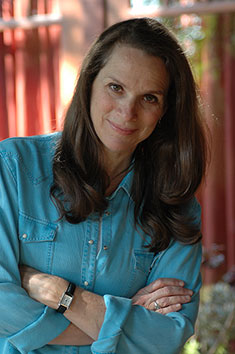"She became pregnant again. She had a dream that an old man with a long gray beard came to her, and he said, 'You know you're pregnant and you're going to have a boy. But name him after me. My name is Chaim. And he's going to live.' They had nobody in the family with that name, Chaim. You know, there was a Yousla, Moishe, but no name Chaim. And the baby was born a boy, and she named him Chaim, and he was the only son. That was my father. He was a spoiled brat. He took advantage of his four sisters." Yet she idolized him completely.
Hoping that Tessie and Pearlie would give voice to my own beliefs, I asked them the same leading question:
Are you a feminist?
Tessie: Say it in plain English.
Pearlie: What do you mean, a feminist?
Do you believe in equal rights for women?
Pearlie: Definitely. Women need to work and be equal. But also, not to hoit yourself. It's hard to have a career and family. I love to see women get ahead in the medical field and all over. When we were younger, we didn't have that. We were treated like a pot on the stove. Really! We had to do the dishes and clean the house, and the men got so much more respect because they were supposed to be smarter than us. They had more education than us. Now, when I see these women doing things that men never even dreamed of doing, I think the coming world is great. We can expect much better and bigger things now.
Tessie: Yes, that I would like. I wouldn't mind that at all. Politics interest me very much. If I'd be much younger, I'd run for senator, and I'd make the law even better for the women than the men. My mother and her mother were brought up to just get married and keep house and raise the children. When I grew up, they had to educate the boys. The girls don't need anything because they can wash diapers without education and things like this. A woman should have the same rights as a man. I wouldn't let my husband go above me. If he drives, I drive, too.
Just now, Pearlie is remembering her happiest moments as a child and confides they were stolen and secretive--reading. "My biggest pleasure was going to the library, taking home seven or eight books--they'd give you as much books as you wanted--putting it under my cover in the bed, and after Mama would go to bed, I'd turn on the light and read for hours. I got more out of reading even than going to the movies."
Today, like the last few times I've seen her, Pearlie's eyes are red-rimmed. At first, she says the pinkness is caused by her allergies, but later admits it's more often from crying.
"Living here," she says, "most of the people that die--and they die in their sleep--everybody else says, 'Oh boy, if I could only die in my sleep, it would be wonderful.' To be honest, everybody fears it. And they won't talk about it, either. They just say, 'Oh well, I wish I could die like that.' "
This is not the first time that Pearlie has spoken to me about her fear of dying. On more days than she cares to recall, another apartment in her building stands empty because of the death of a friend or neighbor. More than once, she has told me that she feels "desolated." Just a week ago, her 95-year-old brother, Marty, died.
Pearlie sits in her recliner chair from Sears, the one my mother and aunt bought for her last year. It almost looks thronelike, since she's covered it with one of her purple and orange afghans. She drifts off for a moment as the car mechanic next door checks another muffler.
"It makes you feel sad," she continues, shutting her sliding glass door to mute the noise. "Your family leaves you. It's like a tree grows, and the branches come down, and the tree looks so lonesome and lonely. But I don't feel abandoned. I still feel attached."
I call Tessie, worried about the headaches she has begun to mention to my father. She recently was scared by a dream, of her parents calling out to her. Is her time near?
"How's your head, Grandma?" I ask.
"What head?" she rifles back, deflecting my concern. She asks about my children, starting with my older son, Trevor, one of her 14 great-grandchildren. I report his latest accomplishment, placing second in a citywide math meet. As if to make up for lost moments (with my father, I wonder?), she instructs me to tell him how wonderful he is.
"You should!" she insists. "You should give him a compliment. When he deserves it. Don't be stingy! I'll teach you psychology. Really. No, this is a fact."
Then she adds, "Tell Brock hello." She has almost forgiven him for not being Jewish. When she was last in California, he teased her about flying off with him to the Caribbean. It's a joke she can't resist. "Tell him he's still my lover boy."
She says her health won't allow her to make her annual pilgrimage to California. She jokes that maybe she'll be "out of town," as in no longer alive. "If I don't come next year," she quips, "I'll come two years later."



